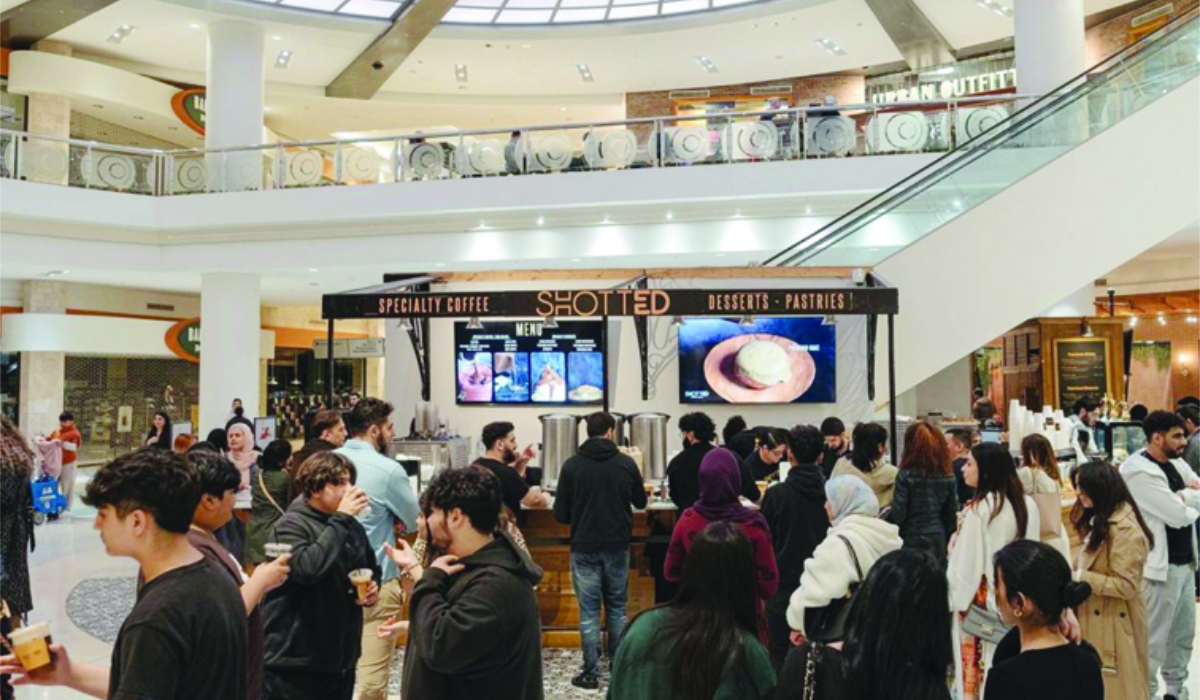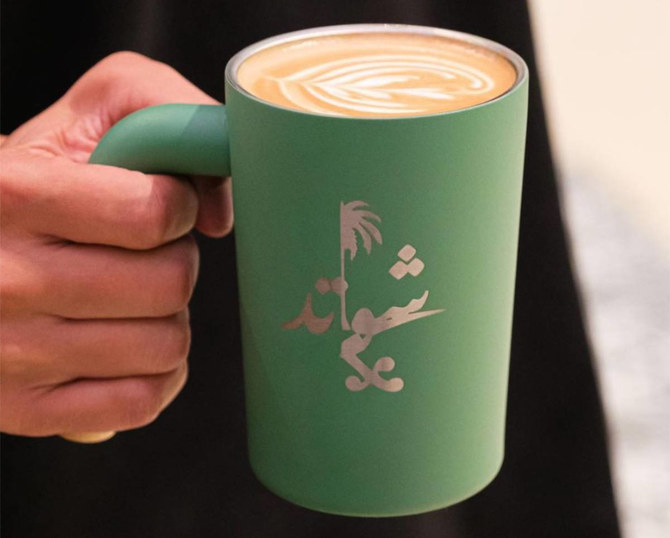JEDDAH: A Saudi speciality cafe has become a favorite meeting spot for Saudi and Arab residents as well as locals in the busy Tysons Corner Center of Washington, D.C. They come together there to enjoy the rich flavors of Saudi coffee and treat themselves to traditional pastries.
Bandar Al-Henaki, founder of Shotted, said: “It is not just a cafe; it’s a gateway to Saudi culture. I wanted to bring a piece of Saudi Arabia to the US, to introduce Americans to the authentic taste of Saudi coffee.”
Inspired by the flourishing cafe scene in the Kingdom, Al-Henaki started Shotted as a pop-up concept in 2019, appearing at festivals and universities around the US capital. He seized the opportunity to showcase his offerings during a “coffee hour” event at a university, where the free samples attracted a significant crowd. Encouraged by the positive response, particularly among Arab communities longing for a taste of Saudi coffee, Al-Henaki decided to establish a brick and mortar spot at Tyson Corner Center in 2020.

Bandar Al-Henaki, Shotted founder
“We saw the incredible potential of the specialty coffee industry in Saudi Arabia, and we believed that the US market was ready for a new standard and an upgrade in the guest experience that we witness in the Kingdom,” said Al-Henaki. With the support of his family, they patiently tested the market and developed the concept over the years.
Maintaining the authenticity of Saudi coffee and desserts while adapting to the preferences of local customers was a crucial challenge but also served as a catalyst for positive growth. Shotted Coffee has witnessed significant development, attracting new customers daily who are intrigued by the concept and captivated by the flavors and hospitality.
HIGHLIGHTS
• Bandar Al-Henaki started Shotted as a pop-up concept in 2019 in the US capital.
• He launched the brick and mortar cafe in Washington, D.C.’s Tyson Corner Center in 2020.
• They have collaborated with Princess Reema bint Bandar, the Kingdom’s ambassador to the US, to cater events at the Saudi Embassy.
The cafe has also garnered attention from the US press, especially during Ramadan, which helped attract new customers. Notably, over 60 percent of the cafe’s customers are locals, indicating a growing interest in Saudi coffee and a desire to explore different cultures. Al-Henaki encourages fellow students to follow suit and proudly showcase the unique aspects of their own countries.
The cafe has become a gathering place for all due to its community-oriented approach. “We wanted to create a space that goes beyond just serving coffee,” Al-Henaki explained. The cafe offers a social and family-friendly atmosphere, free of hookah and alcohol, providing an alternative to the typical nightlife scene prevalent in the US.

Representing the Kingdom in the US, Shotted organizes special celebrations such as Saudi National Day, Saudi Founding Day, and Ramadan season. (Instagram/shottedwith)
To attract local customers, Shotted initially focused on offering common items enjoyed by the local community. Once customers became familiar with the brand and developed a liking for it, they began exploring the unique offerings inspired by Saudi Arabia.
“We believe we are a soft power representing Saudi Arabia through coffee and community. Our goal is to share Saudi Arabian hospitality and flavors indirectly. With Shotted, we aim to influence the local community positively and provide an alternative space for socialization and cultural exchange,” Al-Henaki noted.
We believe we are a soft power representing Saudi Arabia through coffee and community. Our goal is to share Saudi Arabian hospitality and flavors indirectly.
Bandar Al-Henaki, Shotted founder
In their efforts to promote Saudi culture and coffee tradition to a wider audience in the US, Shotted Coffee organizes special celebrations such as Saudi National Day, Saudi Founding Day, and Ramadan season. In a gesture of hospitality, they offer complimentary Saudi coffee to local customers on major holidays, providing them with the opportunity to enjoy and appreciate its unique flavors.
They have also collaborated with Princess Reema bint Bandar, the Kingdom’s ambassador to the US, to cater events at the Saudi Embassy, solidifying their mission to represent Saudi Arabia through their efforts.

Representing the Kingdom in the US, Shotted organizes special celebrations such as Saudi National Day, Saudi Founding Day, and Ramadan season. (Instagram/shottedwith)
Additionally, Shotted is working closely with the Saudi Ministry of Culture to develop community initiatives and expand the brand nationwide, serving as a resource for promoting Saudi Arabia’s cultural heritage.
Looking ahead, Al-Henaki is all ready to open a second location at Tyson’s Galleria. This expansion is expected to amplify the cafe’s influence and offer customers more chances to savor the genuine flavors of Saudi coffee while immersing themselves in the vibrant cultural traditions of the country.





























